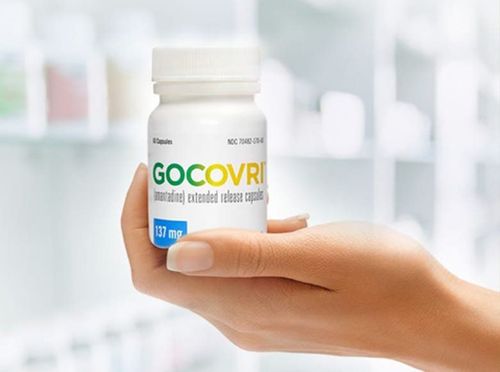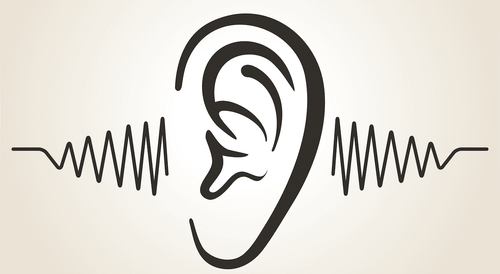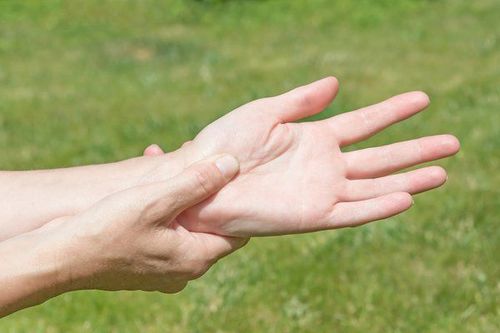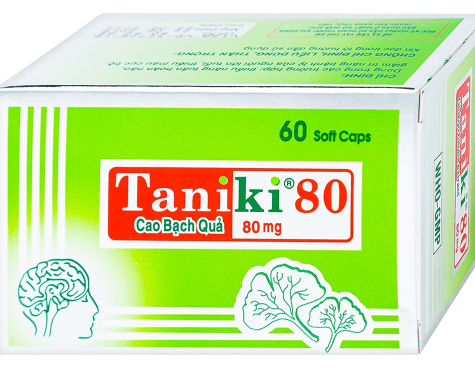This is an automatically translated article.
Posted by Doctor Ma Van Tham - Department of Pediatrics - Neonatology - Vinmec Phu Quoc International General Hospital
Tourette's syndrome (also known as Gilles de la Tourette's syndrome) is a neurological disorder that causes patients to have seizures. The disease is common in children, adolescents and adults.
1. Manifestations of Tourette's Syndrome
Manifestations of Tourette's syndrome are expressed through "Tics" (Tics are movements or sounds that appear suddenly, rapidly, repeatedly, without rhythm, or shape).
Motor tic disorder one or more types of vocal tics present at the same time during the disease, although not necessarily at the same time. The tic disturbances occurred several times a day (often in episodes), almost daily, or intermittently over a period of more than one year, during which no period longer than 3 months was symptom-free. show tic. Onset before age 18. The disorder is not caused by the physical effects of a substance (eg, stimulants) or a medical condition (Hungington's disease, post-viral encephalitis).

Bệnh thường khởi phát trước năm 18 tuổi
2. Does Tourette's syndrome need treatment?
Most children with simple motor tics are transient and do not require treatment. The decision to initiate treatment is based on the severity of the tic symptoms, with tic symptoms being at least moderate or higher and the tics affecting daily living, self-esteem, and relationships. with family members, friends, and teachers) and the child's ability to perform tasks at school.
Many cases of Tourette's syndrome that affect family members more than individuals can also be successfully treated with different methods without necessarily using medication. In addition, because tic symptoms vary from decreasing to increasing, it is best to begin treatment with educational and adaptive psychotherapy before deciding to use medication.
For cases of co-morbidities with attention deficit hyperactivity disorder, obsessive-compulsive disorder, depression, anxiety, etc., the first choice should be to treat coordination disorders, because after treatment Treatment of these disorders tic manifestations may be in remission.
3. Treatments for Tourette's Syndrome
3.1. Educational intervention
For transient tic and simple Tourette syndrome of mild effect, many patients only need assessment, explanation of the disease, and psychoeducational therapy that includes supportive education at school. Education programs for families, teachers, and friends that promote understanding of the disease and acceptance of the disease can have a positive impact on all stages of the disease. Positive association with school facilitates, enables behaviors that try to limit tic onset and acceptance of tic behaviour.
3.2. Diet and lifestyle
Both acute and chronic stress can increase tics, so education about the important role stress plays in tics. Psychotherapy can improve self-assessment, coping skills, family stress, and school adaptation, but there is no clear direct effect on tic behaviors at the level. serious. No special diet is effective for tics, but a well-balanced, health-promoting diet can contribute to comfort and reduce stress. Stimulants such as caffeine should be minimized as they can increase tics in some children. The impact of exercise on tic symptoms has also not been systematically studied, although regular daily exercise programs may be effective as a means of coping with stress. Feeling active and agile, contributing to comfort and health.

Caffeine là thức uống bị hạn chế đối với bệnh nhân Hội chứng Tourette
3.3 Behavioral therapy
A variety of behavioral interventions have been studied in the treatment of Tourette's syndrome, but their effectiveness has not been convincing. However, cognitive-behavioral therapy has been shown to respond and maintain prophylactically in the treatment of obsessive-compulsive disorder, so it can be applied in the treatment of Tourette's syndrome in combination with obsessive compulsive disorder. Parent training, anger management on abnormal behavior of children with tic and Tourette syndrome have been found to be supportive. Although it has not been precisely shown to be effective for tic disorders in controlled studies, measures that provide psychological support, or encourage individual mobility, may facilitate for developing friendships, adjusting to school, building cohesive personality, and managing everyday stress.
At Vinmec Times City International Hospital and Vinmec Central Park, there is a Center for Autism and Cerebral Palsy that will support treatments for Tourette Syndrome. To register for examination and treatment, you can contact the Vinmec Health System Hotline, or register online HERE.














